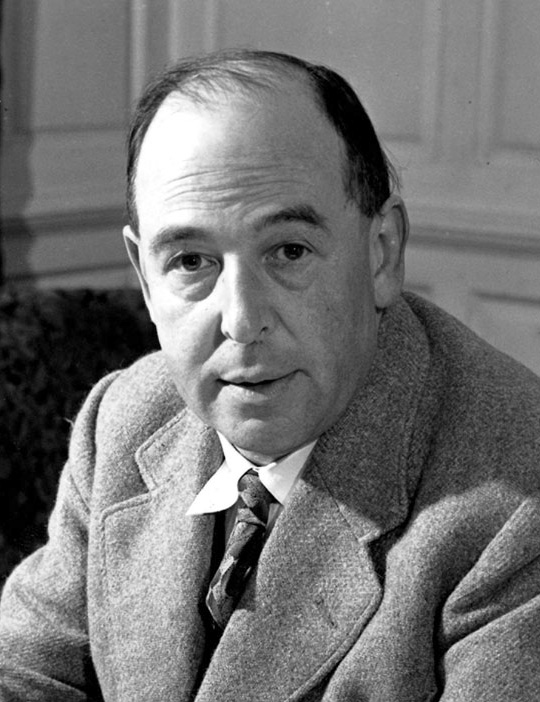The life story of C.S. Lewis
The British author, scholar, and Christian apologist Clive Staples Lewis was also known as C.S. Lewis. His novels, especially The Chronicles of Narnia, and his books on Christian theology and apologetics are his most well-known works. He is regarded as one of the most significant Christian authors of the 20th century because of his ability to combine creative narrative with deep spiritual understanding.
Early Years
Born: Belfast, Ireland (now Northern Ireland), November 29, 1898.
Lewis was the son of Florence Augusta Hamilton Lewis and Albert James Lewis, an attorney. He was particularly close to his older brother, Warren (“Warnie”).
Lewis’s early years were filled with imagination and a fascination for mythological and fantastical tales. He and his brother wrote extensively about the mythical realm they constructed, Boxen.
Tragic Event: Lewis was profoundly impacted by his mother’s death from cancer in 1908, when he was just nine years old. He was transferred to English boarding institutions, where he found the rigorous and sometimes cruel atmosphere difficult to cope with.
Education and Early Career: Lewis studied English literature, philosophy, and classics at Malvern College and then University College, Oxford. He fought in the British Army during World War I, which interrupted his schooling.
– Lewis went back to Oxford to finish his studies after the war, graduating in 1925 with first-class honors. Later, he spent over 30 years teaching English literature at Magdalen College in Oxford as a fellow and tutor.
Literary Career 1. Academic Works: Lewis was a well-respected academic who wrote books on medieval and Renaissance literature, such as English Literature in the Sixteenth Century (1954) and The Allegory of Love (1936).
2. Fiction: Lewis is most known for his seven children’s fantasy books, The Chronicles of Narnia. Readers were initially introduced to the enchanted realm of Narnia and its Christ-like lion, Aslan, in the first novel, The Lion, the Witch, and the Wardrobe (1950). The series has been made into stage plays, TV shows, and movies, and it has sold over 100 million copies.
– In addition, he authored the Space Trilogy, which combines Christian themes with science fiction (Out of the Silent Planet, Perelandra, and That Hideous Strength).
3. Christian Apologetics: Lewis rose to prominence as a Christian apologist, utilizing his literary and intellectual prowess to support and elucidate Christianity. Among his best-known writings are Mere Christianity (1952), which is an anthology of radio lectures outlining the central tenets of Christianity.
A senior demon named Screwtape gives his nephew advice on how to entice humans in the satirical novel The Screwtape Letters (1942).
An investigation of the reasons why a loving God permits pain is presented in The Problem of Pain (1940).
An allegorical story about paradise and hell, The Great Divorce (1945).
4. Autobiography: Lewis’s 1955 book Surprised by Joy details his conversion from atheism to Christianity and how his quest for “joy” brought him to religion.
Spiritual Journey: Although Lewis grew up in the Church of Ireland, his disenchantment with religion and the misery he seen in the world led him to reject religion in his teens.
– He converted back to Christianity in 1929, in part because of his friend J.R.R. Tolkien and other Oxford members of the Inklings, a casual literary discussion club. When Lewis converted, he said he was “surprised by joy.”
– He converted to Anglicanism and used his writing to explain and defend Christianity in a way that both believers and unbelievers could understand.
Personal existence: Lewis led a modest existence, first with his brother Warnie and then with American author Joy Davidman Gresham, with whom he became deeply acquainted.
– Joy married Lewis in 1956, in part to allow her to stay in the United Kingdom. As their bond grew into true love, Joy passed away in 1960 from cancer. Under a pen name, Lewis wrote about his grief in A Grief Observed (1961).
– Lewis was a stepfather to Joy’s two kids, David and Douglas, although he never had children of his own.
Death and Later Years
Lewis took a post at Cambridge’s Magdalene College in 1954, where he taught and wrote until his retirement. On November 22, 1963, he passed away, the same day that President John F. Kennedy was killed. Although the news of Kennedy’s passing eclipsed his passing, his legacy has persisted. Lewis was laid to rest at the Headington, Oxford, graveyard of Holy Trinity Church.
Legacy: The writings of C.S. Lewis have had a significant influence on Christian philosophy and literature. His books are ageless because of his skill at incorporating profound religious themes into captivating tales.
– Alongside individuals like Dietrich Bonhoeffer and G.K. Chesterton, he is regarded as one of the finest Christian apologetics of the modern period. His works are preserved and his legacy is promoted via Wheaton College’s Wade Center and C.S. Lewis Institute.
One of C.S. Lewis’s most famous quotes is, “You are never too old to set another goal or to dream a new dream.”
– “I believe in Christianity as I believe that the sun has risen: not only because I see it, but because by it I see everything else.”
– “There are far, far better things ahead than any we leave behind.”
– “Humility is not thinking less of yourself, but thinking of yourself less.”
The life and writings of C.S. Lewis continue to awe people worldwide with their depth of thought and inventiveness. His works serve as a reminder of the strength of faith, the value of creativity, and the eternal hope that may be found in Christ.







